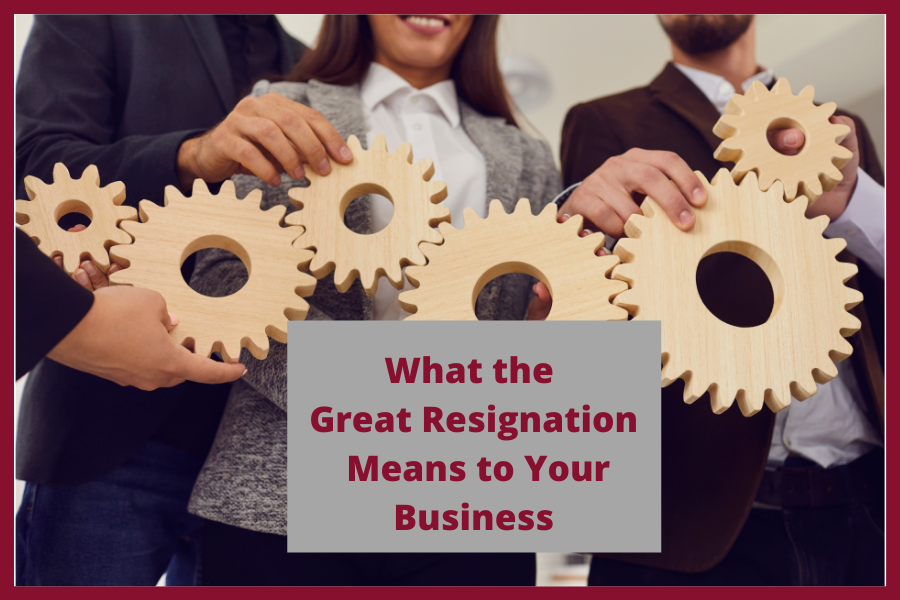If you intend to grow and sell a valuable business, the Great Resignation that kicked off in mid 2021 means everything. Everything that is if you care about the value of your business.


If you intend to grow and sell a valuable business, the Great Resignation that kicked off in mid 2021 means everything. Everything that is if you care about the value of your business.

Learn about the three phases in a business exit plan and why each is important for the business, its employees, the owner and his or her family. This post includes our most popular FAQs on this topic as well. Wondering about the Exit Planning designations for professional advisors? We’ve covered that in this post as well.

What should a business owner do to prepare to sell his or her business some time in the near future?
Aside from right-sizing the business’s overhead costs to line up with its current level of revenue, and looking for opportunities the pandemic may be presenting, there are four things a business owner can do now to prepare to sell. And more importantly, doing these four things will mean that when a Letter of Intent is received from a buyer, the business will be very well-prepared to survive the due diligence stage of the sale.

When thinking about ways to sell your business, you are likely familiar with the most common strategies proposed by business advisors: selling to a third-party such as a private equity firm or a competitor, or selling to your family. What your business transition advisor may not have discussed with you is instead selling your business to an Employee Stock Ownership Plan (an “ESOP”).

For the business owner who desires a great outcome, including the business owner’s family in the exit planning process, as well as the decision to sell, is vital.

If you own a business and decide to sell, you would hope that sale becomes your big exit. You know what I mean. The exit that allows you to hire a driver, gardener, and of course, someone like Alice from the Brady Bunch (side note: Don’t feel bad if you like that show. I’d still watch it every single day if I could!). Before you begin using hundred-dollar bills to light your cigars, let’s talk about three very important facts you need to know as you prepare your SBA business for sale.

Our Featured Advisors, Attorney Mark Fazio and Business Broker Neal Isaacs, answer a few questions to help business owners learn how to prepare for due diligence when selling a business.

For many businesses, the ultimate goal is to sell the business. Can you picture it? Walk away from the daily stress and aggravation with a fat pile of cash. Hop a plane to your favorite tropical destination and spend the rest of your days lounging a white sandy beach, sipping pina coladas out of a coconut, without a care in the world.
Well, friends, the above scenario is the ideal scenario. I like sipping cold drinks on a beach as much as the next guy, and I hope that happens for you. But if you clicked on this article, you may be looking at a much different scenario.
And that’s what this article is going to cover: the less-than-ideal scenario.

Jim Beach, author and serial entrepreneur, interviewed Exit Promise founder Holly Magister on his radio show School for Startups Radio. We want to share some of the insights from that interview here on the blog. This is the third post in this series, and Holly discusses the steps business owners should take to prepare their business for sale.

Jim Beach, author and serial entrepreneur, interviewed Exit Promise founder Holly Magister on his radio show School for Startups Radio. We want to share some of the insights from that interview here on the blog. First, read about how Holly recommends entrepreneurs can plan for the exit from the very beginning.

The method chosen to transfer ownership of a business for sale is one of the most important factors to consider as a business owner. And the reason for its importance is related to the wide differences in the amount of cash received (net of taxes) by the business owner across the various methods of transfer or sale. An ESOP or Employee Stock Ownership Plan is one method of ownership transfer or sale many business owners consider when they decide it’s time to retire. That said, let’s explore the ESOP as a potential method of transfer or sale from both the business owner’s and employees’ perspectives.

My business partner, the author Jack Beauregard, and I recently had breakfast with Lorraine McGregor from Vancouver, BC Canada. Lorraine is the author of books on Exit Planning and Entrepreneurship, as well as an experienced business consultant. We were all discussing why so many business owners were delaying (the inevitable) transition planning from their businesses.

Business owners should be aware of the relative size of their top customers (or clients) sales revenue to their business’ total revenue. All it takes is a simple division computation to reveal a customer’s relative size in terms of gross revenue. If calculated properly, a customer concentration may be confirmed. While it is generally good for customers to increase their purchases of goods and services with a business, unless the remaining customers do so in similar fashion, the growing concentration of revenue from one (or more) customer(s) creates risk for the business owner.